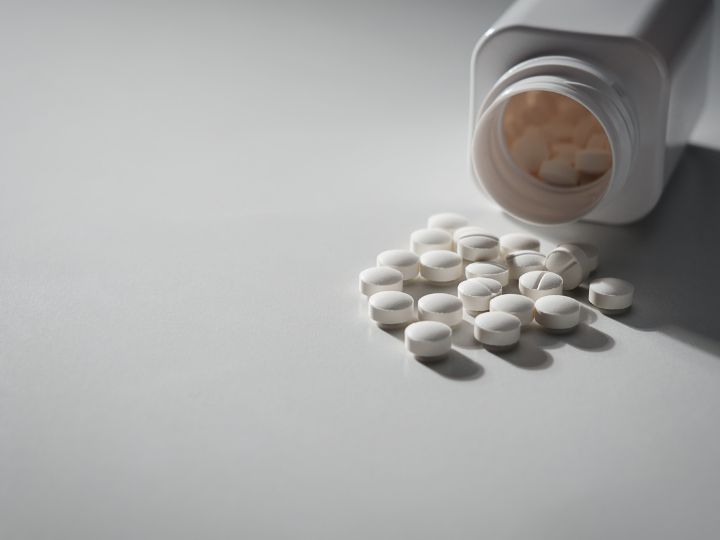Phentermine is a prescription medication used to suppress appetite and aid short-term weight loss. While it can be effective when used as directed, phentermine also carries the risk of dependence and withdrawal, especially when misused or taken for longer than prescribed.
If you or a loved one is experiencing symptoms after stopping phentermine, it’s important to understand what’s happening and how to get help.
What is Phentermine?
Phentermine is a stimulant medication approved by the FDA for short-term obesity treatment. It works by increasing certain brain chemicals, such as norepinephrine and dopamin,e to reduce hunger and boost energy.
Phentermine is chemically similar to amphetamines, and while it’s not classified as an amphetamine, it does stimulate the central nervous system in a similar way. This makes it effective for appetite control but also poses a risk for misuse, tolerance, and psychological dependence.
Can You Become Dependent on Phentermine?
Yes, especially with long-term use or higher-than-recommended doses. Phentermine isn’t meant for extended use, but some individuals continue taking it for months or even years, chasing weight loss goals or energy boosts.
Over time, the body can become dependent on the drug, and stopping it suddenly can lead to withdrawal symptoms.Risk factors for phentermine dependence include:
- Long-term or high-dose use
- Using phentermine without medical supervision
- Combining it with other stimulants or substances
- History of substance use disorder
What is Phentermine Withdrawal?
Phentermine withdrawal occurs when someone who has become dependent on the drug suddenly reduces their dose or stops taking it altogether. The brain, accustomed to the stimulant’s effects, reacts to its absence, leading to a range of physical and psychological symptoms.
While withdrawal from phentermine is typically not life-threatening, it can be uncomfortable and may trigger relapse or misuse of other substances.
Symptoms of Phentermine Withdrawal
Physical Symptoms
- Fatigue and low energy
- Excessive sleepiness (or insomnia)
- Increased appetite and weight gain
- Muscle aches and general discomfort
Psychological Symptoms
- Depression
- Anxiety or panic
- Irritability and mood swings
- Trouble concentrating or “brain fog”
- Intense cravings for stimulants or sugary foods
Withdrawal Timeline
- 24–48 hours: Symptoms begin, typically fatigue and irritability
- 1–2 weeks: Acute symptoms peak, especially mood disturbances and cravings
- Weeks to months: Some may experience prolonged withdrawal, including depression and sleep issues (known as post-acute withdrawal syndrome, or PAWS)
Is Phentermine Withdrawal Dangerous?
Phentermine withdrawal is usually not medically dangerous, but it can be emotionally intense. The most serious risk is severe depression or suicidal thoughts, particularly for individuals with pre-existing mental health issues.
This is why professional support is strongly recommended, especially if you’re dealing with multiple substances or have underlying psychological concerns.
Treatment for Phentermine Withdrawal
At-Home vs. Medical Detox
Some individuals may be able to manage mild withdrawal symptoms at home with a slow taper and lifestyle support. However, in moderate to severe cases, or when other drugs are involved, a medically supervised detox is the safest and most effective option.
Medical Treatment Options
- Gradual tapering: Reducing the dose over time to minimize symptoms
- Medications: Sleep aids, antidepressants, or anti-anxiety medications may help manage specific symptoms
- Nutritional support: Rebuilding physical health through diet and hydration
Therapeutic Support
- Cognitive Behavioral Therapy (CBT): Helps address thought patterns driving substance use
- Support groups: Peer support can reduce feelings of isolation and provide encouragement
- Trauma-informed care: For those with a history of trauma or disordered eating
Recovery and Long-Term Support
Withdrawal is only the first step. Full recovery from phentermine misuse often requires ongoing support and treatment. This may include:
- Managing body image concerns or eating disorders
- Developing healthy coping skills
- Treating co-occurring mental health conditions
- Creating a relapse prevention plan
At Premiere Addiction Recovery, a drug rehab in Florida, we understand that every individual’s path to recovery is different. We offer customized treatment plans that address the whole person, not just the addiction.
How Premiere Addiction Recovery Can Help
If you’re struggling with phentermine withdrawal or stimulant dependence, you don’t have to go through it alone. Premiere Addiction Recovery offers:
- Detox Services
- Residential Treatment
- Medically-Assisted Therapy
- Family Education
- Pregnant/Postpartum Detox
- Veteran’s Services
Our compassionate, experienced team is here to support your recovery every step of the way.
Conclusion
Phentermine can be a useful weight-loss tool when taken as prescribed, but its stimulant effects can lead to dependence and uncomfortable withdrawal symptoms. Understanding the risks and knowing how to get proper treatment is critical for long-term health and well-being.
If you or someone you love is experiencing phentermine withdrawal, reach out to Premiere Addiction Recovery today. We’re here to provide expert care and a path forward to a healthier, more balanced life.


